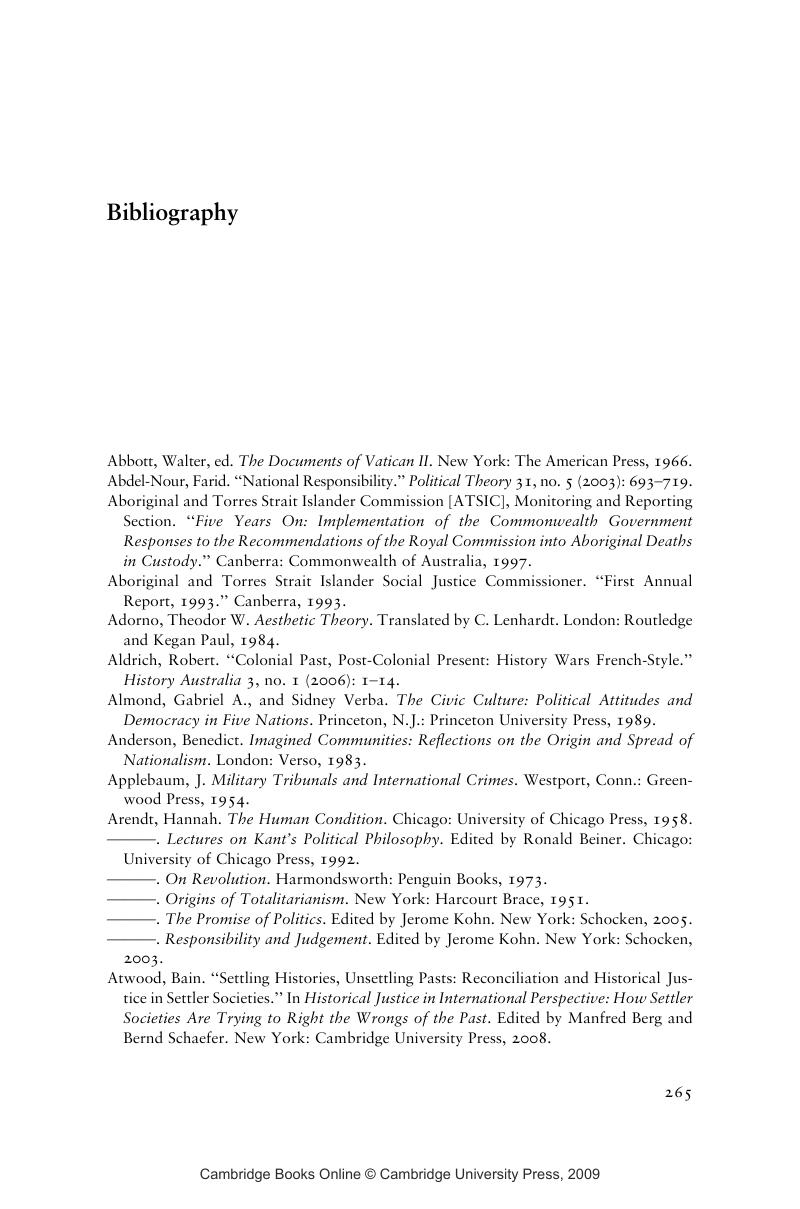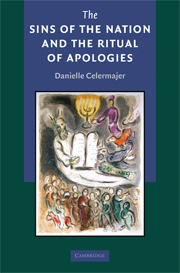Book contents
- Frontmatter
- Contents
- Acknowledgements
- Introduction: The Apology and Political Theory
- 1 The Apology Phenomenon
- 2 Apologies as Speech Acts
- 3 Judaism's Apology: Reconstituting the Community
- 4 The Privatization of Repentance in Christianity
- 5 Australia's Divided History
- 6 Saying Sorry in Australia
- 7 Apology's Responsibility
- 8 Apology as Political Action
- Bibliography
- Index
- References
Bibliography
Published online by Cambridge University Press: 27 July 2009
- Frontmatter
- Contents
- Acknowledgements
- Introduction: The Apology and Political Theory
- 1 The Apology Phenomenon
- 2 Apologies as Speech Acts
- 3 Judaism's Apology: Reconstituting the Community
- 4 The Privatization of Repentance in Christianity
- 5 Australia's Divided History
- 6 Saying Sorry in Australia
- 7 Apology's Responsibility
- 8 Apology as Political Action
- Bibliography
- Index
- References
Summary

- Type
- Chapter
- Information
- The Sins of the Nation and the Ritual of Apologies , pp. 265 - 278Publisher: Cambridge University PressPrint publication year: 2009



